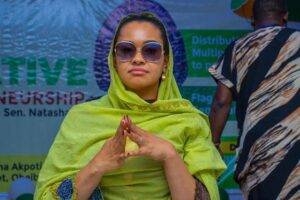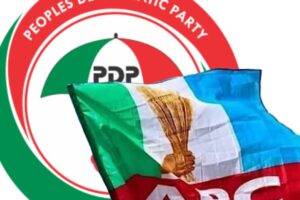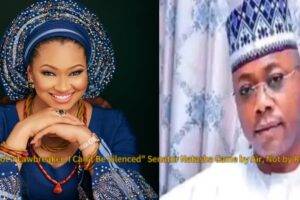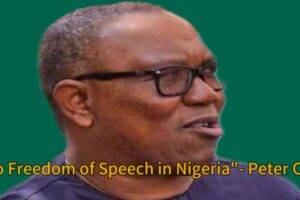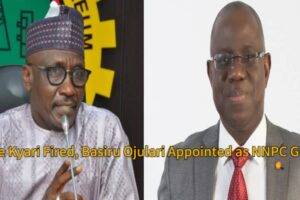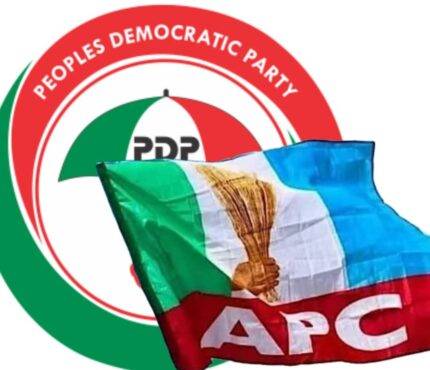Former Rivers State Governor and ex-Minister of Transportation, Rotimi Amaechi, has alleged that the ongoing political crisis between the suspended Governor of Rivers State, Siminalayi Fubara, and his predecessor, Nyesom Wike, the Minister of the Federal Capital Territory, is fundamentally about money sharing. Amaechi made this assertion in an interview with DW Africa on Saturday, emphasizing that the dispute lacks ideological or governance-related justifications.
According to Amaechi, the feud has less to do with governance and more to do with personal interests. He questioned why neither party has openly addressed the root cause of their disagreement before the public. Amaechi lamented that Nigerians appear unbothered by the rampant corruption and lack of transparency in governance, further weakening democracy in the state.
Emergency Rule Sparks Constitutional Concerns
Amaechi strongly criticized the emergency rule imposed on Rivers State by President Bola Tinubu, describing it as unconstitutional. He argued that the Nigerian Constitution clearly outlines how a governor can vacate office, either through death, resignation, or impeachment, but not through a unilateral decision by the president.
The Amaechi contended that the move was a dangerous precedent that could destabilize democracy across Nigeria. He expressed fears that the president’s decision might be part of a broader strategy to weaken opposition governors ahead of the 2027 general elections. Amaechi also pointed out that the insecurity cited as justification for the emergency rule is not unique to Rivers State, questioning why similar measures have not been imposed in more volatile regions such as the North East and North West.
Rivers’ Political Crisis Deepens Amid Controversial LG Elections
The conflict between Fubara and Wike reached a boiling point during the recent local government elections in the state. The elections, which were marred by legal battles and party withdrawals, exacerbated existing tensions. The Rivers State Independent Electoral Commission (RSIEC), led by Justice Adolphus Enebeli (retd.), faced conflicting court rulings on whether it had the mandate to conduct the polls.
Notably, factions of both the All Progressives Congress (APC) and the Peoples Democratic Party (PDP) boycotted the election, citing a lack of transparency in the process. They accused RSIEC of failing to conduct a proper stakeholders’ meeting and disregarding court orders. This development further fueled instability, leading to the controversial suspension of Governor Fubara and other state officials.
Tinubu’s Drastic Move: Fallout and Reactions
President Tinubu’s decision to suspend Governor Fubara, his deputy, and state lawmakers for an initial period of six months sent shockwaves across the nation. In a national broadcast, Tinubu appointed retired Vice Admiral Ibokette Ibas as the state administrator, a move that many legal experts and political analysts have condemned as unconstitutional.
While the president assured that the judicial arm of government in Rivers State would remain functional, many critics argue that the action is a direct violation of democratic principles. Political observers suggest that this intervention may have significant implications for the 2027 elections, as it raises concerns over the federal government’s ability to remove sitting governors without due process.
Amaechi Calls for Resistance and the Way Forward
Amaechi has urged the people of Rivers State to resist the emergency rule and protest against what he describes as an undemocratic imposition. He emphasized the need for civic engagement and legal resistance to uphold democracy in the state.
With the crisis showing no signs of resolution, political analysts predict a prolonged power struggle in Rivers State. The ongoing legal battles, party realignments, and federal intervention could set a precedent for future political conflicts across Nigeria. As the situation unfolds, all eyes remain on the Supreme Court, civil society groups, and international observers for possible intervention in restoring constitutional order in the state.
Table of Contents
Discover more from OGM News NG
Subscribe to get the latest posts sent to your email.

